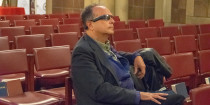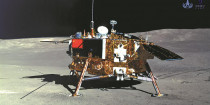Following the international conference, organized by the Ibn-e-Sina Research & Development Center’s in Kabul in early November, on the reconstruction of Afghanistan, a group of researchers launched the following petition:
We, the undersigned, researchers and experts in the domains of the history of civilizations, cultural heritage, archaeology, anthropology, sociology, and many other fields, and other enlightened citizens of the world, in Afghanistan, Syria, Russia, China, and many other countries, launch the following call.
1) We regret profoundly that the “Collective West”, while weeping crocodile tears over destruction of the world’s cultural heritage, has imposed a selective ban of scientific cooperation on nations mistakenly considered as “opposed to their rules and values.” The complete freeze of all cooperation in the field of archaeology between France and both Syria and Afghanistan, is just one example of this tragedy.
2) We request particular attention to the case of Afghanistan. Its neighboring countries, national and international institutions, and countries involved in international conventions for the protection of cultural and natural heritage are committed to cooperation in the field of guarding cultural heritage sites and artifacts and preventing their smuggling and destruction. Therefore, it is expected, that in the current situation, they will fully play their role in the protection of Afghanistan’s cultural heritage in accordance with international laws and conventions. However, the dramatic neglect of international cultural institutions and donors to Afghanistan, the lack of sufficient funds in the field of cultural heritage protection, and the political treatment of international cultural heritage institutions have seriously endangered Afghanistan. Undoubtedly, the non-recognition of the Afghan government has dimmed the attention of cultural institutions. Considering the above, we expect these international institutions to renew their full support to protect both the tangible and the intangible cultural heritage of Afghanistan.
3) We regret that UNESCO, which should raise its voice against any new form of “cultural and scientific apartheid,” has repeatedly worsened the situation by politicizing issues beyond its prerogatives.
4) Therefore, we call on the international community, to end immediately this form of “collective punishment,” which creates suffering and injustice, promotes ignorance, and endangers humanity’s capacity for mutual respect and understanding.
The progress of scientific knowledge, in a positive climate permitting all to share it, is by its very nature beneficial to each and to all and to the very foundation of a true peace.











